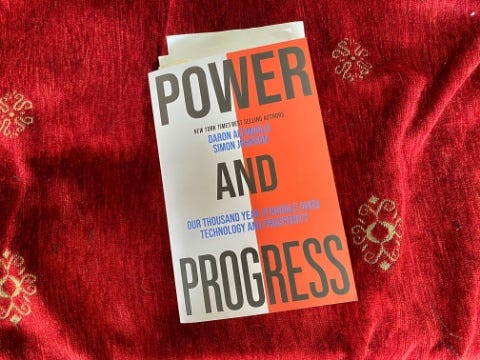Thornham: high tide
We go to Norfolk to watch birds, but often wind up just looking at the cloudscapes.
Quote of the Day
“Modern man lives under the illusion that he knows what he wants, while he actually wants what he is supposed to want.”
Erich Fromm
Geoffrey Vickers, the wisest man I ever knew, once said to me that “the hardest thing in life is to know what to want. Most people never figure it out and wind up pretending that they wanted what they could get.”
Musical alternative to the morning’s radio news
Richard Strauss | Im Abendrot from Four Last Songs | Jessye Norman
I really love these songs, particularly this one.
Long Read of the Day
Sign of the times: might ChatGPT re-invigorate GPG?
Lovely post by my friend Quentin (Whom God Preserve) on his blog — status.org
It’s important to keep finding errors in LLM systems like ChatGPT, to remind us that, however eloquent they may be, they actually have very little knowledge of the real world.
A few days ago, I asked ChatGPT to describe the range of blog posts available on Status-Q. As part of the response it told me that ‘the website “statusq.org” was founded in 2017 by journalist and author Ben Hammersley.’ Now, Ben is a splendid fellow, but he’s not me. And this blog has been going a lot longer than that!
I corrected the date and the author, and it apologised. (It seems to be doing that a lot recently.) I asked if it learned when people corrected it, and it said yes. I then asked it my original question again, and it got the author right this time.
Later that afternoon, it told me that StatusQ.org was the the personal website of Neil Lawrence.
Being Quentin, he goes on adding value to this episode, involving signing things cryptographically. But you don’t need to know much about the tech to understand the point of the story.
The aspect of the story that made me laugh out loud is that Neil Lawrence (whom I also know) is the DeepMind Professor of Machine Learning at Cambridge! You couldn’t make this stuff up.
Footnote The ‘GPG’ in the title of the blog post stands for ‘Gnu Privacy Guard’.
Books, etc.
I’ve been reading this for several weeks and just filed my review for the Observer (forthcoming soon).
It’s an important book, I think, not least because it challenges (and demolishes) the conventional narrative that always equates technological development with ‘progress’ — when it actually means a particularly skewed interpretation of that word. ‘Progress’ in the tech sense does not include shared prosperity that societies need but just prioritises and emphasises the benefits that accrue to elites. The book surveys a thousand years of technological change to argue not only that technical advances benefit some more than others, but also that different ways of organising production enrich and empower some people and disempower others. It’s also nice to see — as Angus Deaton has pointed out — how the authors (both world-class economists themselves) “take aim at economists’ mindless enthusiasm for technical change and their crippling neglect of power”.
My commonplace booklet
Nature’s Steadicam
Fascinating video by Paul Dinning who watches kestrels hunting in Cornwall. I’ve often wondered how they managed to stay in position. And how they can spot small movements at such a distance.
TKSST explains:
Like hummingbirds and kingfishers, kestrels have the advantage of a larger accessory optic system, a sort of superhero power that detects movement and helps keep their balance, enabling unparalleled head stabilization while hovering. By bobbing their heads periodically, kestrels can estimate distances and locate prey, sometimes by seeing urine trails with their ultraviolet-sensitive vision.
Whenever I see an avian predator hunting I’m glad I’m not a small rodent.





